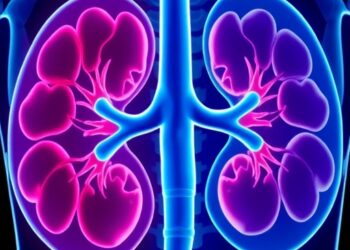TAMPA, Fla. (Sept. 4, 2024) — Immune checkpoint inhibitors are a type of cancer treatment that helps the immune system attack cancer cells more effectively. One of the key proteins involved in this process is Lymphocyte Activation Gene-3 (LAG3), which suppresses the antitumor immune response. Moffitt Cancer Center researchers have made an important discovery about LAG3, revealing how it interacts with other proteins to control immune activity. Their study, published in Nature Communications, could lead to better cancer treatments by enhancing the effectiveness of immune checkpoint inhibitors.
TAMPA, Fla. (Sept. 4, 2024) — Immune checkpoint inhibitors are a type of cancer treatment that helps the immune system attack cancer cells more effectively. One of the key proteins involved in this process is Lymphocyte Activation Gene-3 (LAG3), which suppresses the antitumor immune response. Moffitt Cancer Center researchers have made an important discovery about LAG3, revealing how it interacts with other proteins to control immune activity. Their study, published in Nature Communications, could lead to better cancer treatments by enhancing the effectiveness of immune checkpoint inhibitors.
Led by Vince Luca, Ph.D., the Moffitt study provides a detailed blueprint of how LAG3 interacts with a molecule known as MHC class II. These interactions are critical because they help the immune system differentiate between healthy cells and cancer cells. By blocking LAG3, immune checkpoint inhibitors can allow the immune system to target and destroy cancer cells. Key findings include:
- Visualization of a LAG3 Interaction Network: The study reveals a detailed network of interactions between MHC class II and LAG3, uncovering multiple novel drug targets and signaling mechanisms. This comprehensive “molecular blueprint” provides a deeper understanding of how LAG3 modulates immune responses and its potential impact on therapeutic interventions.
- Mechanistic Insights: The research sheds light on how LAG3 influences T cell activation and immune tolerance. These insights are crucial for designing targeted therapies that can control LAG3 activity with greater precision.
- Therapeutic Implications: By revealing specific interactions between LAG3 and other immune regulators, the study opens new avenues for developing inhibitors and activators. These new molecules could enhance the effectiveness of existing immunotherapies and offer new treatment options for patients with cancer and autoimmune disorders.
“This study represents a significant breakthrough in our understanding of LAG3,” said Luca, associate member of the Immunology Department. “The detailed molecular structure and mechanistic insights we’ve uncovered will help guide the development of next-generation immunotherapies. We’re excited to translate these discoveries into innovative therapies that could transform patient care.”
This work is supported by the National Institutes of Health (R01AI140758, R01AI159678, P01AI120943, P30CA076292), the Florida Department of Health Bankhead Coley grant program (24B04) and the Rita Allen Foundation Scholars program.
About Moffitt Cancer Center
Moffitt is dedicated to one lifesaving mission: to contribute to the prevention and cure of cancer. The Tampa-based facility is one of only 57 National Cancer Institute-designated Comprehensive Cancer Centers, a distinction that recognizes Moffitt’s scientific excellence, multidisciplinary research, and robust training and education. Moffitt’s expert nursing staff is recognized by the American Nurses Credentialing Center with Magnet® status, its highest distinction. For more information, call 1-888-MOFFITT (1-888-663-3488), visit MOFFITT.org, and follow the momentum on Facebook, Twitter, Instagram and YouTube.
###
Journal
Nature
Method of Research
Experimental study
Subject of Research
Animals
Article Title
Structural basis for mouse LAG3 interactions with the MHC class II molecule I-Ab
Article Publication Date
29-Aug-2024
COI Statement
V.C.L. is a consultant on unrelated projects for Cellestia Biotech, Remunix, and Curie.Bio. The remaining authors have no competing interests.




